What Does 'Healthy Aging' Really Mean?
Steemians! Should we strive for immortality?
I say yes, but first we need to face some uncomfortable facts about aging. I believe that the way that we talk about the consequences of aging affects how strongly we pursue solutions. In cognitive aging research, some people are tossing around a misnomer that I believe is working against the overall goal of preventing cognitive decline: “healthy aging”.
Cognitive aging is typically split into two categories: “normal” cognitive decline and disease-related cognitive decline. There is some debate regarding the line between these two types of age-related cognitive decline.
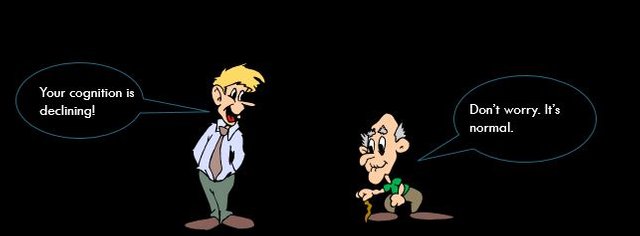
On one hand, it is argued that certain diseases have specific causes, courses, and biomarkers that clearly differentiate them from the normal course of decline. Also, the things that are considered diseases (e.g. dementia, Alzheimer’s disease) are debilitating whereas normal cognitive decline is usually just a nuisance.
However, on the other hand, cognitive decline, disease-related or not, is caused by some biological dysfunction and many of those malfunctioning biological mechanisms play a role (at least initially) in the diseases.
Differentiating between disease-related and non-disease-related cognitive decline has had the unfortunate outcome of the field sometimes using “healthy” cognitive aging as a synonym for “normal.”
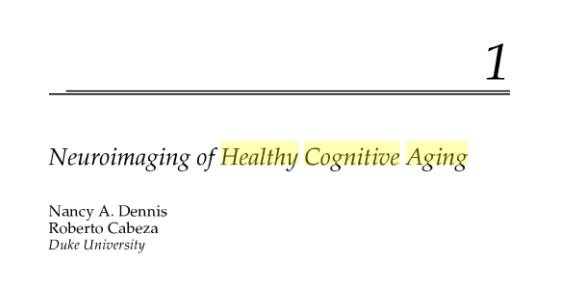

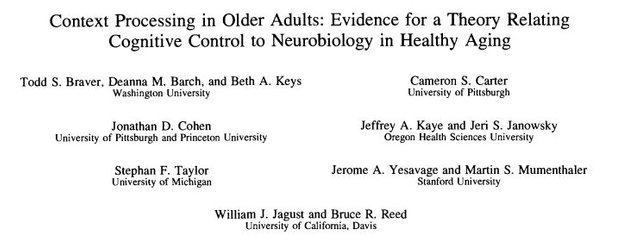
This misnomer is dangerous. All cognitive decline that is caused by biological decline should be considered unhealthy and a target for prevention and treatment. This discussion fits nicely into what a famous scientist (wizard?), Aubrey de Grey, has called the “pro-aging trance,” which basically describes the tendency for people to talk about normal aging processes as natural, even beneficial, rather than facing the despair of aging.

His book, Ending Aging, is pretty good if you’re interested in research on aging. I think that he has alienated himself a little from some researchers that find his tone to be too arrogant and dismissive of the thousands of other researchers that are working desperately to extend longevity, but it’s a hopeful and exciting book that outlines research strategies towards really tackling aging.
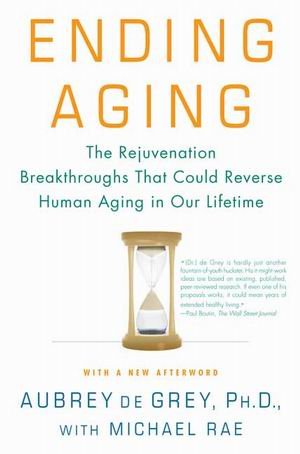
Another great book on aging in general is Aging: The Paradox of Life, Why We Age by Robin Holliday (don’t be deterred by its awful cover art).
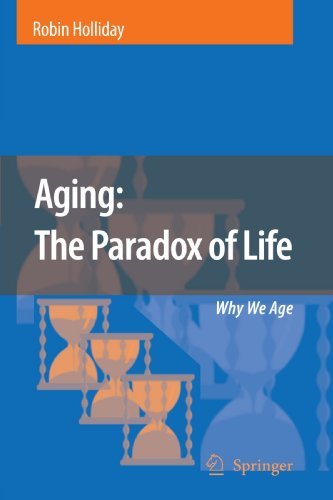
So what are the targets to prevent cognitive aging? I wanted to make one major point here in response to a steemit article I saw yesterday summarizing some new brain research about neural stem cells:
https://steemit.com/longtech/@longevity/neural-stem-cells-are-regulated-by-the-choroid-plexus
Some cells in the body are replaced throughout life. Think skin cells, cells in the intestines, your liver, your blood. Other cells are never replaced, and they last your entire life. This is true of most of your brain and has consequences for strategies to prevent aging.
For the cells that are replaced, we can focus on strategies that keep the cell replacements going strong. If you have ever heard about lengthening telomeres, that strategy would be useful for cells that are replaced. A telomere is a structure at the end of a chromosome (the place where your DNA is wrapped up) that slowly gets shorter each time a cell replicates. Cells usually only divide a certain number of times, called the Hayflick limit after the scientist who first observed the phenomenon. This limit has been tied to telomere shortening. So if we can keep telomeres long, we should be able to immortalize cell lines in certain parts of the body. (Preventing cancer is another story).
However, a lot of important cells in the body are not replaced.
This is true for most neurons in the brain, except for some cell populations in a structure called the hippocampus, and perhaps in the basal ganglia. This leaves out nearly all of the cells in the cortex of the brain. Therefore, strategies for preventing cognitive decline should not focus on cellular replacement, but should focus on the maintenance of cellular health.
You can think of cells as cars. Cars get old and worn out after using them for a long time and then they break. Sometimes you can buy a new car to replace the old car, and everything is fine. If there are no new cars available, you have to prevent the deterioration of the old car. You can extend the life of the car by not using it (but then what’s the point of having it in the first place!), taking care of it when you do use it, and intervening to replace, clean, and improve its parts.
Until we have better technologies to “replace, clean, and improve” the parts of our cells, the best thing to do is to treat your brain well with all the same advice you always hear: get enough sleep, try to get yourself out of chronically stressful situations, exercise, eat healthfully. Hopefully those technologies that will be needed for the next level of cellular maintenance are around the corner. As a society, let’s begin thinking about normal aging as a disease and start taking our first big steps towards significantly extended lifespans.
Very interesting article. There is so many theories and points of view, it is hard to decide which way to go sometimes. Would be great to figure it all out one day.
Hi! This post has a Flesch-Kincaid grade level of 10.7 and reading ease of 54%. This puts the writing level on par with Michael Crichton and Mitt Romney.
Nice @ben.zimmerman
Shot you an Upvote :)
I'll give you my upvote.
Please reciprocate in my post https://steemit.com/steemit-recipes/@gustavopasquini/41ybc-eat-better-feel-better-by-chef-gustavo-pasquini-ft-steemit